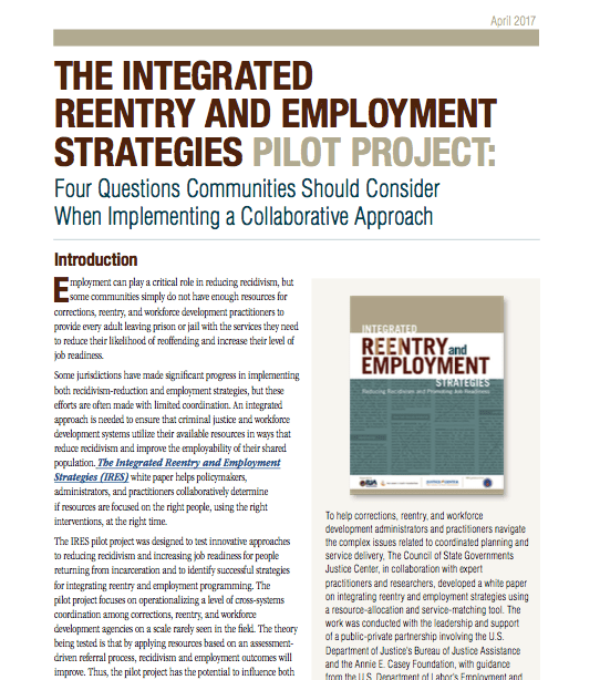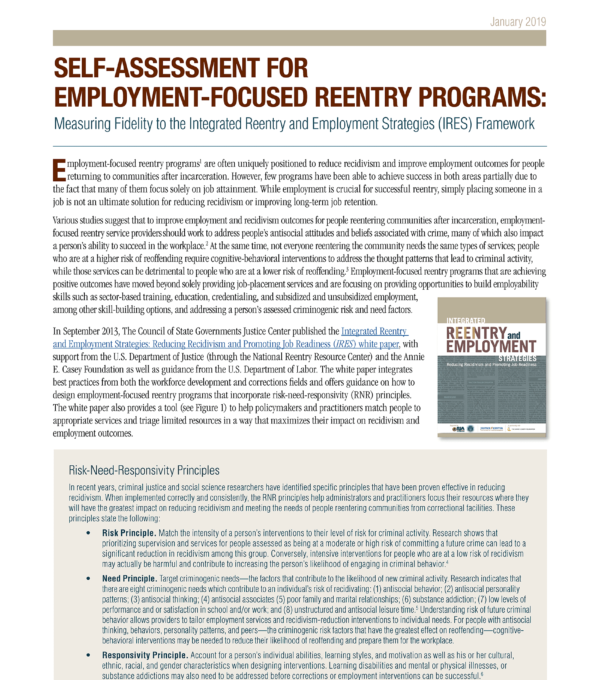Pilot Projects
The Integrated Reentry and Employment Strategies (IRES) Pilot Project was developed by the CSG Justice Center in 2013 to test innovative approaches outlined in the Integrated Reentry and Employment Strategies: Reducing Recidivism and Promoting Job Readiness white paper.
The white paper outlines a framework that integrates best practices from both the workforce development and corrections systems to reduce recidivism and increase job readiness for people returning to communities after incarceration. The white paper also offers guidance on how to design employment-focused reentry programs that incorporate risk-need-responsivity (RNR) principles into service delivery; it also provides a tool to help policymakers and practitioners match people to appropriate services that have the maximum impact on recidivism and employment outcomes.
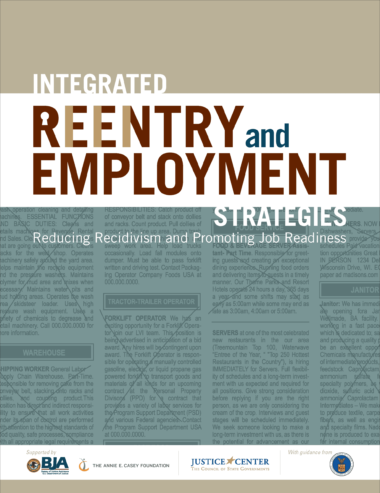
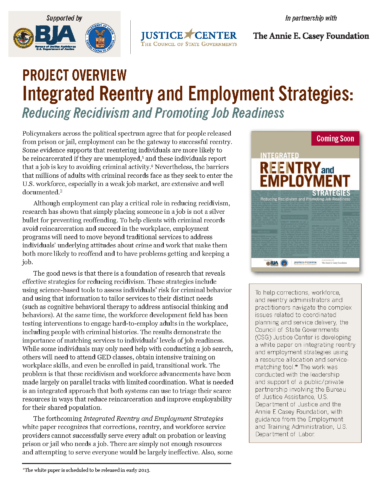
The Model
The IRES framework, published in 2013, was developed to help policymakers, system administrators, and practitioners collaboratively determine whether resources are being efficiently used to connect the right people to the right interventions at the right time.
People returning to the community after incarceration have a variety of needs; this population is diverse, and as such, requires tailored services. The Resource-Allocation and Service-Matching tool (below) focuses on the use of assessments to determine the likelihood that a person will reoffend and their level of job readiness. As a result of these two assessments, four groups are created, each requiring distinct employment services delivered in distinct ways.
The Resource-Allocation and Service-Matching Tool
The Resource-Allocation and Service-Matching tool focuses on the use of assessments to determine the likelihood that a person will reoffend, as well as their level of job readiness. The results of these assessments fall into four groups, each requiring distinct employment services delivered in specific ways.
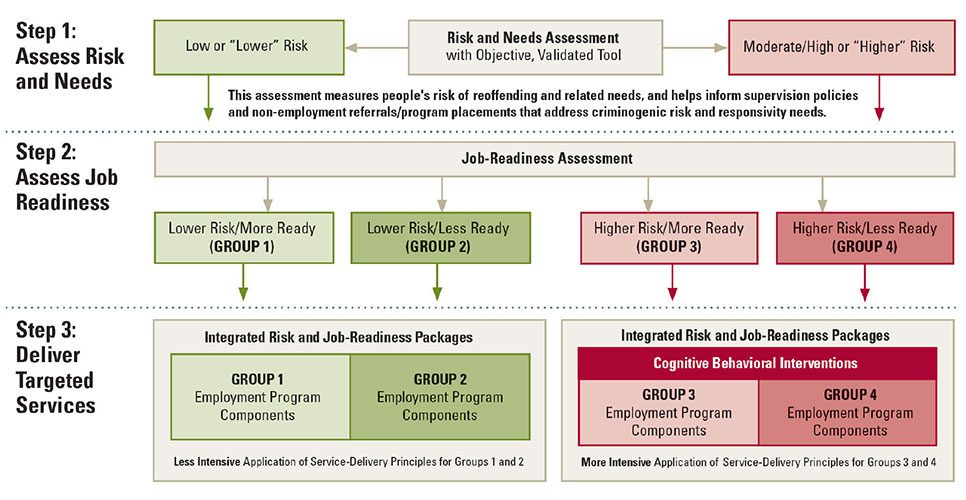
Testing the Model in Two Sites
The IRES pilot project is designed to test innovative strategies to reduce recidivism and increase job readiness for individuals with criminal records. The pilot project focuses on operationalizing a level of cross-systems coordination among corrections, workforce development agencies, and community-based service providers on a scale rarely seen in the field. The theory being tested is that by applying resources based on an assessment-driven referral process, recidivism and employment outcomes will improve.
Thus, the IRES pilot project has the potential to influence both correctional and workforce programming across the country by providing a replicable framework for organizing systems in a cost-effective way. The project is being supported through a public-private partnership between the U.S. Department of Justice and the Annie E. Casey Foundation, with guidance from the U.S. Department of Labor.
The research questions being answered in both sites included:
- What are the risk and job-readiness profiles of adults returning to the counties from correctional facilities?
- How do assessments inform the services a person receives, and what are the mechanisms for making connections to those services?
- What services are available in the community, and how well do they meet the risk and job-readiness needs of this population?
Technical Assistance Approach
The National Reentry Resource Center (NRRC) worked with a team of expert partners to provide technical assistance to both pilot sites for up to three years. The first year included information gathering and planning activities, followed by an implementation year. Finally, a process and impact evaluation was conducted to ensure that the larger field benefits from the lessons learned from the pilot sites.
The NRRC technical assistance team brought together individuals with extensive experience in policy analysis, program development and implementation, and research. The project also included assistance from expert consultants, including the Heartland Alliance National Transitional Jobs Network and the National Institute of Corrections.
The Heartland Alliance National Transitional Jobs Network provided support assessing the capacity of service providers in Milwaukee and Palm Beach Counties and determining the most appropriate factors to be considered in evaluating job readiness. The National Institute of Corrections provided capacity-building training to service providers during year two.
To ensure that community-based services align with the needs of the population, technical assistance providers
- Analyzed the prevalence of risk, job-readiness, and responsivity factors within the target population;
- Reviewed the services provided in the community to determine the extent to which they can effectively treat people with different risk and job readiness levels; and
- Compared those two sources of data to determine where people should be referred based on their assessed needs, the structure of the referral process, and where there are gaps in community-based services. As people move through the criminal justice system, they encounter multiple state, city, and local agencies and receive a variety of assessments, which may inform decision-making and referrals. To learn about the systems in Milwaukee and Palm Beach Counties, technical assistance providers conducted a systems mapping exercise, identifying how an individual moves from intake to a facility, through incarceration and completion of reentry or pre-release planning, on to community supervision, and eventually to a community-based service provider.
These technical assistance services helped both sites establish policy frameworks to ensure that existing resources are leveraged in an impactful and sustainable way to deliver employment programs for this population.











